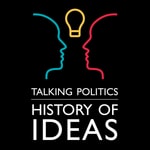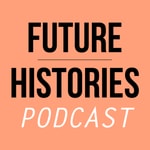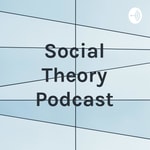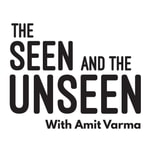Talking Politics: HISTORY OF IDEAS – Details, episodes & analysis
Podcast details
Technical and general information from the podcast's RSS feed.

Talking Politics: HISTORY OF IDEAS
Talking Politics
Frequency: 1 episode/15d. Total Eps: 27

Hosted on Acast. See acast.com/privacy for more information.
Recent rankings
Latest chart positions across Apple Podcasts and Spotify rankings.
Apple Podcasts
🇬🇧 Great Britain - politics
01/08/2025#74🇬🇧 Great Britain - politics
31/07/2025#91🇬🇧 Great Britain - politics
19/07/2025#84🇬🇧 Great Britain - politics
17/07/2025#74🇫🇷 France - politics
26/05/2025#99🇬🇧 Great Britain - politics
15/05/2025#89🇫🇷 France - politics
19/04/2025#73🇫🇷 France - politics
27/02/2025#74🇬🇧 Great Britain - politics
05/02/2025#94🇬🇧 Great Britain - politics
04/02/2025#76
Spotify
No recent rankings available
Shared links between episodes and podcasts
Links found in episode descriptions and other podcasts that share them.
See allRSS feed quality and score
Technical evaluation of the podcast's RSS feed quality and structure.
See allScore global : 53%
Publication history
Monthly episode publishing history over the past years.
History of Ideas Q and A
samedi 8 mai 2021 • Duration 39:48
Hosted on Acast. See acast.com/privacy for more information.
Shklar on Hypocrisy
mardi 20 avril 2021 • Duration 46:11
Judith Shklar’s Ordinary Vices (1984) made the case that the worst of all the vices is cruelty. But that meant we needed to be more tolerant of some other common human failings, including snobbery, betrayal and hypocrisy. David explores what she had to say about some of the other authors in this series – including Bentham and Nietzsche – and asks what price we should be willing to pay for putting cruelty first among the vices.
Going Deeper:
- David Runciman, Political Hypocrisy (2008)
- Katrina Forrester, ‘Hope and Memory in the thought of Judith Shklar’, Modern Intellectual History (2011)
- Samantha Ashenden and Andreas Hess, 'The Theorist of Belonging', Aeon (2020)
- [Audio]: 'The Moral Philosophy of the Good Place,' Vox
Hosted on Acast. See acast.com/privacy for more information.
Douglass on Slavery
mardi 16 février 2021 • Duration 46:46
My Bondage and My Freedom (1855) by the former slave Frederick Douglass was the second of his three autobiographies and the one that contained his most radical ideas. In this episode David explores how Douglass used his life story not only to expose the horror of slavery but to champion a new approach to abolishing it. The name for this approach: politics.
Going deeper.....
- David Blight, Frederick Douglass: Prophet of Freedom (2018)
- Saidiya Hartman, Scenes of Subjection: Terror, Slavery, and Self-Making in Nineteenth-Century America (1997)
- Colum McCann, TransAtlantic (2013)
- (Audio): Jamelle Bouie, Henry Louis Gates Jr., and Rebecca Onion, 'Who Should Tell the Story of American Slavery?' (2015)
Hosted on Acast. See acast.com/privacy for more information.
Bentham on Pleasure
mardi 9 février 2021 • Duration 47:35
Jeremy Bentham’s Introduction to the Principles of Morals and Legislation is a definitive early statement of the basis of utilitarianism: how do we achieve the greatest happiness of the greatest number? David looks at Bentham’s rationale for this approach and the many criticisms it has faced. Bentham has often been accused of reducing politics to mechanical calculation and missing what really matters. But given the time in which he was writing, wasn’t the prioritisation of pleasure the most radical idea of all?
Recommended version to purchase
Going deeper…
- Philip Lucas and Anne Sheeran, ‘Asperger’s Syndrome and the Eccentricity and Genius of Jeremy Bentham’ (2006)
- Michel Foucault, Discipline and Punish (1975)
- Thomas McMullan, ‘What does the panopticon mean in the age of digital surveillance?’, The Guardian (2015)
- (Audio) In Our Time, Utilitarianism
Hosted on Acast. See acast.com/privacy for more information.
Rousseau on Inequality
Season 2
mardi 2 février 2021 • Duration 47:55
Jean-Jacques Rousseau’s Discourse on Inequality (also known as the Second Discourse) tells the story of all human history to answer one simple question: how did we end up in such an unequal world? David explores the steps Rousseau traces in the fall of humankind and asks whether this is a radical alternative to the vision offered by Hobbes or just a variant on it. Is Rousseau really such a nice philosopher?
Recommended version to purchase
Going deeper…
- Leo Damrosch, Jean Jacques Rousseau: Restless Genius (2005)
- David Edmonds and John Eidinow, Rousseau’s Dog (2007)
- Pankaj Mishra, ‘How Rousseau predicted Trump’, The New Yorker (2016)
- (Audio) In Our Time, The Social Contract
Hosted on Acast. See acast.com/privacy for more information.
Q & A with David
vendredi 3 juillet 2020 • Duration 48:55
We got lots and lots of excellent questions from listeners about the themes and ideas in this series of talks. In this extra episode
David will do his best to answer some of them, from Hobbes to Weber, and from Gandhi to feminism. Plus he talks about what's missing from this series and where we might start next time.
Go to https://www.talkingpoliticspodcast.com/history-of-ideas for the full collection of reading lists.
Quentin Skinner on the state:
(Video) Quentin Skinner, ‘What is the state? The question that will not go away’
Orwell on Gandhi:
Hosted on Acast. See acast.com/privacy for more information.
Fukuyama on History
lundi 25 mai 2020 • Duration 46:36
Francis Fukuyama’s The End of History (1992) became associated with the triumph of liberal democracy at the end of the twentieth century. But was Fukuyama really a triumphalist? David explores what Fukuyama had to say about the strengths and weaknesses of liberal democracy and asks whether his analysis still holds true today. What have we learned about the modern state from its history? And can it, and we, really change now?
Recommended version to purchase:
Going Deeper:
- Paul Hirst for the LRB on ‘Endism’
- Fukuyama at the 2020 Munich Security Conference
- Fukuyama on the 2016 presidential election
- Louis Menand, ‘Francis Fukuyama Postpones the End of History,’ The New Yorker.
- Talking Politics with Fukuyama
Hosted on Acast. See acast.com/privacy for more information.
MacKinnon on Patriarchy
vendredi 22 mai 2020 • Duration 44:52
Catharine MacKinnon’s Toward a Feminist Theory of the State (1989) challenges two dominant ways of thinking about politics: liberalism, which wants to protect us from the power of the state, and Marxism, which wants to liberate us through the power of the state. What if neither is good enough to emancipate women? Mackinnon explains why patriarchal power permeates all forms of modern politics. David
discusses what she thinks we can do about it.
Recommended version to purchase:
Going Deeper:
- Lorna Finlayson in the LRB on Catharine MacKinnon, feminism, and the law
- Catharine A. MacKinnon, Sexual harassment of working women: a case of sex discrimination (New Haven, CT: Yale University Press, 1979).
- Drucilla Cornell, ‘Sexual difference, the feminine, and equivalency: a critique of MacKinnon’s Toward a feminist theory of the state’, Yale Law Journal, vol. 100, no. 7, article 12.
- The NYTimes on Catharine MacKinnon and sexual harassment
- Catharine Mackinnon for The Atlantic on #MeToo
Hosted on Acast. See acast.com/privacy for more information.
Fanon on Colonialism
lundi 18 mai 2020 • Duration 41:03
Frantz Fanon was a psychiatrist who both experienced and analysed the impact of colonial violence. In The Wretched of the Earth (1961) he developed an account of politics that sought to channel violent resistance to colonialism as a force for change. It is a deliberately shocking book. David explores what Fanon’s argument says about the possibility of moving beyond the power of the modern state.
Free online version of the text:
Recommended version to purchase:
Going Deeper:
- Megan Vaughan for the LRB on Fanon and psychiatry in North Africa
- Frantz Fanon, Toward the African revolution: political essays
- Frantz Fanon, Black skin, white masks (New York, NY: Grove Press, 2008).
- (Video) Gillo Pontecorvo, The Battle of Algiers [film] (1966)
- Jean-Paul Sartre, ‘Preface’, in Frantz Fanon, The wretched of the earth (Harmondsworth: Penguin Classics, 2001)
- Alice Cherki, Frantz Fanon: a portrait, Nadia Benabid, trans. (Ithaca, NY: Cornell University Press, 2006).
Hosted on Acast. See acast.com/privacy for more information.
Arendt on Action
vendredi 15 mai 2020 • Duration 44:18
Hannah Arendt’s The Human Condition (1958) is a remarkably prophetic book. At its heart is an analysis of the relationship between labour, work and action, set against a time of rapid technological change. Arendt worried about the power of computers, believed in the capacity of people to reinvent themselves through politics and despaired of the influence of Thomas Hobbes. Was she right?
Recommended version to purchase:
Going Deeper:
- James Miller in the LRB on Hannah Arendt
- Hannah Arendt, The Origins of Totalitarianism
- Hannah Arendt, Eichman in Jerusalem: A Report on the Banality of Evil
- In Our Time on Hannah Arendt
- Matthew Beard for the Guardian, ‘With Robots, is a life without work one we’d want to live?’
Hosted on Acast. See acast.com/privacy for more information.









